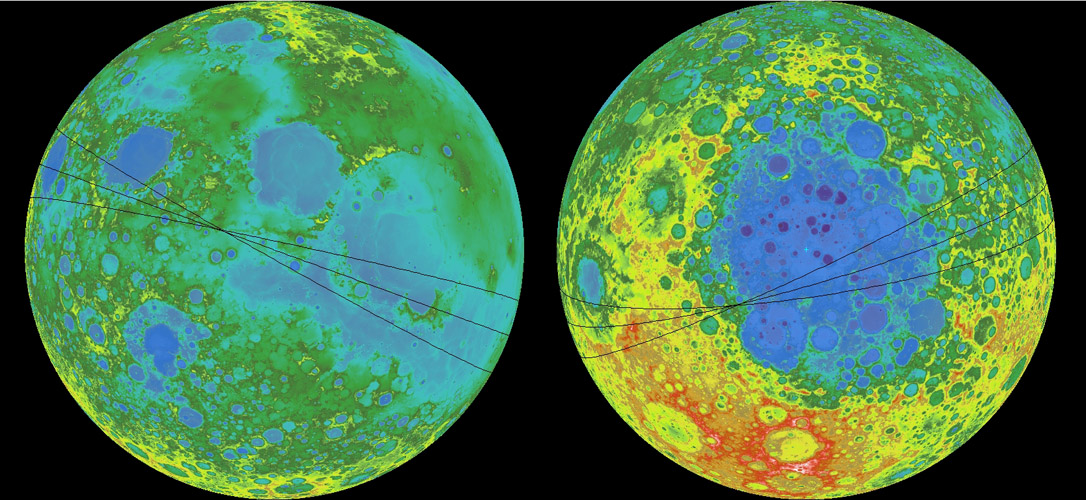Difference between revisions of "May 16, 2014"
| (6 intermediate revisions by the same user not shown) | |||
| Line 1: | Line 1: | ||
__NOTOC__ | __NOTOC__ | ||
=A Paleo-Equator?= | =A Paleo-Equator?= | ||
| − | + | <!-- Start of content --> | |
<!-- ws:start:WikiTextHeadingRule:0:<h1> --> | <!-- ws:start:WikiTextHeadingRule:0:<h1> --> | ||
<!-- ws:start:WikiTextLocalImageRule:6:<img src="/file/view/LPOD-May16-14.jpg/509223064/LPOD-May16-14.jpg" alt="" title="" /> -->[[File:LPOD-May16-14.jpg|LPOD-May16-14.jpg]]<!-- ws:end:WikiTextLocalImageRule:6 --><br /> | <!-- ws:start:WikiTextLocalImageRule:6:<img src="/file/view/LPOD-May16-14.jpg/509223064/LPOD-May16-14.jpg" alt="" title="" /> -->[[File:LPOD-May16-14.jpg|LPOD-May16-14.jpg]]<!-- ws:end:WikiTextLocalImageRule:6 --><br /> | ||
| Line 7: | Line 7: | ||
<br /> | <br /> | ||
Was the Moon knocked over?<br /> | Was the Moon knocked over?<br /> | ||
| − | [http://www.nature.com/ngeo/journal/vaop/ncurrent/pdf/ngeo2150.pdf Futoshi Takahashi] and Japanese colleagues report their analysis of the orientation of magnetization of lunar magnetic anomalies (such as [ | + | [http://www.nature.com/ngeo/journal/vaop/ncurrent/pdf/ngeo2150.pdf Futoshi Takahashi] and Japanese colleagues report their analysis of the orientation of magnetization of lunar magnetic anomalies (such as [https://the-moon.us/wiki/Reiner_Gamma Reiner Gamma]). They have discovered that about half of the anomalies have poles near the present north pole, but the others had a north pole at about 40°S, 2°W. In other words, early in lunar history the Moon rotated around a different polar axis than it does today. As there is no evidence of a gradual migration of the pole, it appears that the change in alignment was a sudden event. I wanted to see where the equator was when the rotational pole was at 40°S so Maurice Collins used [http://ltvt.wikispaces.com/LTVT LTVT] to generate these maps of that ancient equator. There are three lines because the Japanese scientists determined magnetizations separately using Lunar Prospector data and Kaguya data; the middle line is the average of those two. I had wondered if multiple impact basins lined up along the paleo-equator, which would imply that the projectiles were in Earth orbit. But these maps do not support that idea. What they do show is that the [https://the-moon.us/wiki/South_Pole-Aitken_basin South Pole-Aitken Basin] lies near the ancient equator. The Japanese scientists note that, and imply that the impact formation of the SPA Basin may have forced the Moon to flip over, establishing a new orientation of rotation. This is an intriguing possibility, but much more work needs to be done. For example, I can't see that the magnetic anomalies with the current magnetic pole are systematically younger than ones for the older pole. And since the formation of the SPA Basin is more ancient than any other basin with a magnetic anomaly it is difficult to understand how there is any surviving anomaly with the old polar orientation. If the idea of knocking a world on its side seems unlikely, remember that Uranus is titled 98°, and Venus may have been knocked completely upside down (which is why it rotates backwards).<br /> |
<br /> | <br /> | ||
<em>[mailto:tychocrater@yahoo.com Chuck Wood]</em><br /> | <em>[mailto:tychocrater@yahoo.com Chuck Wood]</em><br /> | ||
<br /> | <br /> | ||
| + | <p><b>Yesterday's LPOD:</b> [[May 15, 2014|Look To the Mountains]] </p> | ||
| + | <p><b>Tomorrow's LPOD:</b> [[May 17, 2014|Color Mapping]] </p> | ||
<hr /> | <hr /> | ||
| + | {{wiki/ArticleFooter}} | ||
Latest revision as of 18:52, 13 October 2018
A Paleo-Equator?

LRO altimetry maps (created by Maurice Collins) showing early the equator if the north pole were at 40°S, 2°W.
Was the Moon knocked over?
Futoshi Takahashi and Japanese colleagues report their analysis of the orientation of magnetization of lunar magnetic anomalies (such as Reiner Gamma). They have discovered that about half of the anomalies have poles near the present north pole, but the others had a north pole at about 40°S, 2°W. In other words, early in lunar history the Moon rotated around a different polar axis than it does today. As there is no evidence of a gradual migration of the pole, it appears that the change in alignment was a sudden event. I wanted to see where the equator was when the rotational pole was at 40°S so Maurice Collins used LTVT to generate these maps of that ancient equator. There are three lines because the Japanese scientists determined magnetizations separately using Lunar Prospector data and Kaguya data; the middle line is the average of those two. I had wondered if multiple impact basins lined up along the paleo-equator, which would imply that the projectiles were in Earth orbit. But these maps do not support that idea. What they do show is that the South Pole-Aitken Basin lies near the ancient equator. The Japanese scientists note that, and imply that the impact formation of the SPA Basin may have forced the Moon to flip over, establishing a new orientation of rotation. This is an intriguing possibility, but much more work needs to be done. For example, I can't see that the magnetic anomalies with the current magnetic pole are systematically younger than ones for the older pole. And since the formation of the SPA Basin is more ancient than any other basin with a magnetic anomaly it is difficult to understand how there is any surviving anomaly with the old polar orientation. If the idea of knocking a world on its side seems unlikely, remember that Uranus is titled 98°, and Venus may have been knocked completely upside down (which is why it rotates backwards).
Chuck Wood
Yesterday's LPOD: Look To the Mountains
Tomorrow's LPOD: Color Mapping
COMMENTS?
Register, Log in, and join in the comments.



